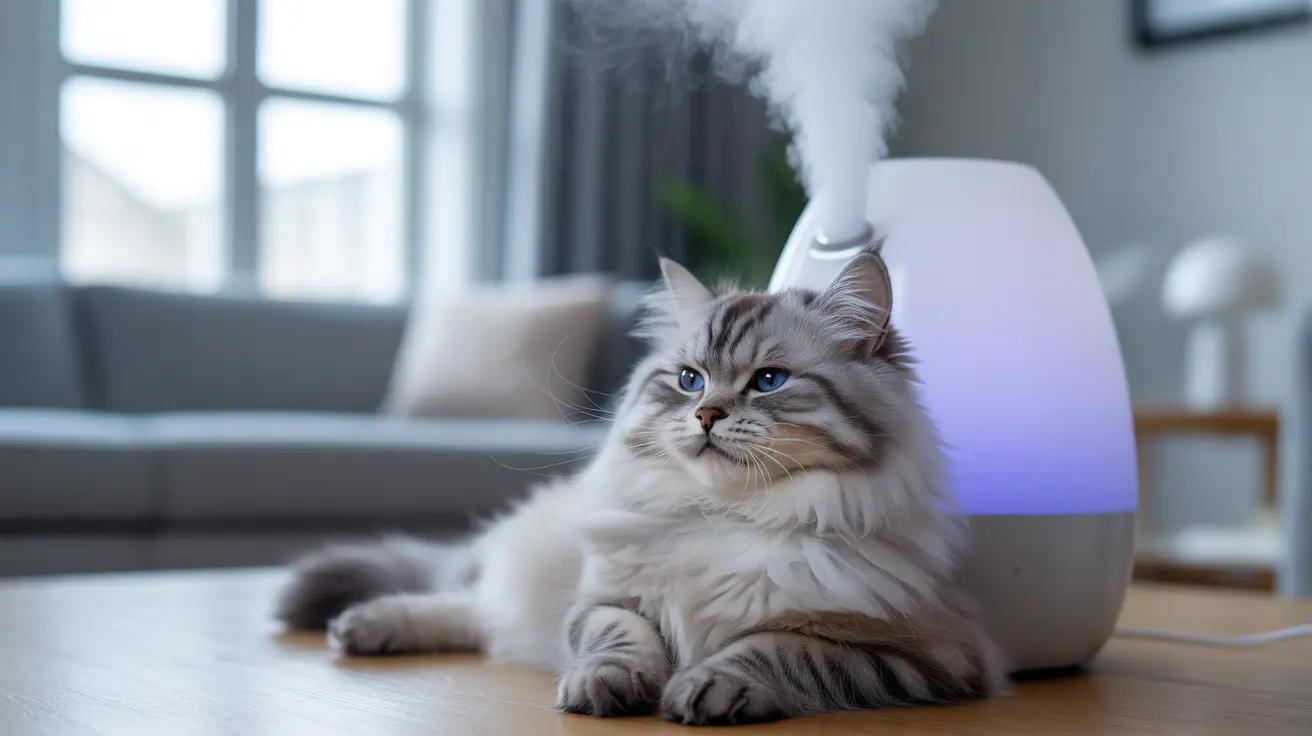How Humidifiers Benefit Cats with Respiratory Issues
Humidifiers work by adding moisture to the air, which can significantly improve your cat's breathing comfort. The increased humidity helps thin out mucus secretions, making it easier for your cat to clear congested airways naturally.
The added moisture in the air also helps soothe irritated nasal passages and throat tissue, reducing inflammation and discomfort. This is particularly beneficial for cats suffering from upper respiratory infections or chronic conditions.
Key Benefits of Proper Humidity Levels
- Easier breathing through moistened airways
- Reduced inflammation of nasal passages
- Better mucus drainage
- Improved recovery from respiratory infections
- Enhanced overall comfort during illness
Choosing the Right Humidifier for Your Cat
When selecting a humidifier for your cat's congestion, safety should be your primary concern. Cool-mist ultrasonic humidifiers are typically the best choice for households with pets.
Types of Humidifiers to Consider
- Cool-mist ultrasonic humidifiers (safest option)
- Evaporative humidifiers
- Warm-mist humidifiers (use with caution)
Safe Placement and Operation Guidelines
Proper placement of your humidifier is crucial for both effectiveness and safety. Position the unit in an elevated location where your cat can't knock it over, but close enough to where they rest to provide maximum benefit.
Monitor humidity levels in your home, aiming to maintain between 30-50% relative humidity. Higher levels could promote mold growth, while lower levels won't provide adequate relief.
Alternative Relief Methods
In addition to using a humidifier, there are several other ways to help your congested cat:
- Create a steamy environment in the bathroom
- Use pet-safe saline drops
- Keep your cat's living area clean and dust-free
- Ensure proper hydration
When to Seek Veterinary Care
While humidifiers can provide significant relief, some situations require professional medical attention. Contact your veterinarian if your cat shows:
- Persistent congestion lasting more than 10 days
- Difficulty breathing
- Loss of appetite
- Lethargy or unusual behavior
Frequently Asked Questions
What type of humidifier is safest to use for a cat with congestion?
Cool-mist ultrasonic humidifiers are the safest option for cats. They don't pose burn risks and effectively add moisture to the air without creating potentially dangerous hot surfaces or steam.
How does using a humidifier help relieve my cat's nasal congestion and breathing issues?
Humidifiers add moisture to the air, which helps thin mucus secretions and reduce inflammation in the nasal passages. This makes it easier for cats to breathe and clear congestion naturally.
Can I use essential oils or additives in a humidifier to help my cat's congestion?
No, avoid using essential oils or additives in your humidifier. Many of these substances can be toxic to cats and may worsen respiratory issues. Use plain, clean water only.
Where should I place a humidifier in my home to keep my cat safe and avoid accidents?
Place the humidifier on a stable, elevated surface where your cat can't knock it over. Position it near your cat's favorite resting area but out of direct reach.
How often should I clean and maintain the humidifier to prevent health risks for my cat?
Clean your humidifier at least weekly, following manufacturer instructions. Daily water changes and regular disinfecting help prevent mold and bacteria growth that could harm your cat's health.
Remember, while humidifiers can provide significant relief for cat congestion, they work best as part of a comprehensive approach to respiratory health, including proper veterinary care when needed.






